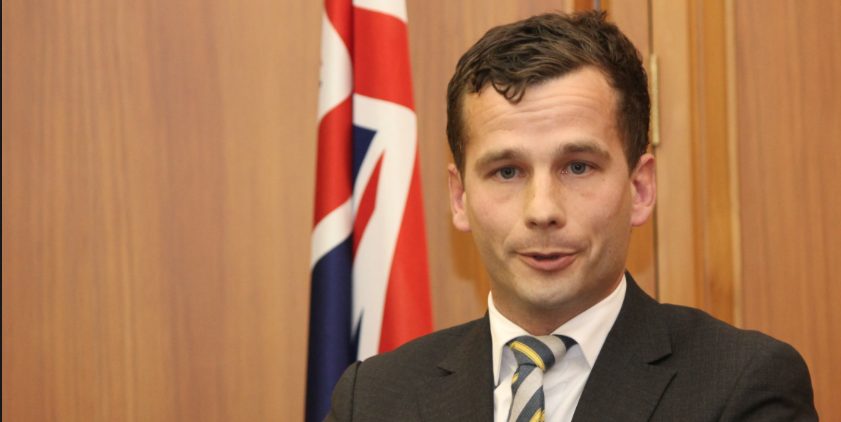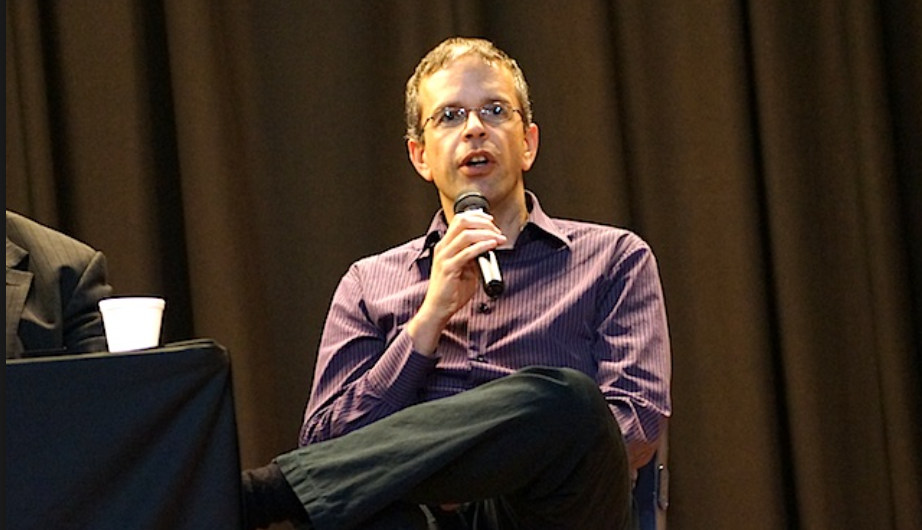Earlier today in New Zealand the Harmful Digital Communications Bill passed into law after its third reading despite a last minute rallying of oposition to the proposed legislation. The New Zealand Herald ran the following account;
Controversial cyberbullying law passes
• New cyberbullying law will create a criminal offence of intentionally causing harm by posting a digital communication, punishable by up to two years’ imprisonment or a maximum fine of $50,000.
• Complaints can be made to an approved agency, which will attempt to resolve the issue and may contact companies like Google to get material taken down.
A wide-reaching law that will criminalise online communications deemed deliberately harmful has passed into law – despite unexpected and last minute opposition.
The Harmful Digital Communications Bill has passed its third reading, 116 votes in favour to 5 votes against.
The controversial law is designed to crack-down on cyber-bullying, but opponents have warned it is too vague and could be used as a weapon against free speech.
Act Party leader David Seymour was expected to be the only MP to vote against the legislation, after reluctant support from Labour and the Greens.
However, this afternoon the Greens chose to allow the rare step of a split vote, with Gareth Hughes, Russel Norman, Julie Anne Genter and Steffan Browning opposing the law.“Most of the Green Party caucus is supporting the Harmful Digital Communications Bill due to our concern for New Zealanders’ rights to personal security and the right to be safe from cyber-bullying,” co-leader Metiria Turei said
“This legislation has received strong support from organisations such as the Human Rights Commission. However, there have been strong submissions from media organisations who are concerned that this legislation may have a chilling effect upon freedom of speech.”
A new offence will now be created of sending messages or posting material online that were intended to cause harm, and did so.
Another new offence will be incitement to commit suicide in situations where the person does not then attempt to take their own life. Internet service providers or companies such as Facebook or Google could be asked by a New Zealand agency to remove a harmful communication.
The legislation progressed after the so-called Roast Busters case, in which teenage boys boasted online about sex with drunk and under-age girls.
Justice Minister Amy Adams has said the criminal provisions in the new law are there for only the most serious cases, and the threshold for prosecution is very high.
Children under 14 can’t be charged with cyberbullying and those aged 14 to 16 will go into the youth justice system.
Mr Seymour told the House that the bill was a “knee jerk” reaction that was a “case study in bad law making”, that would have a chilling effect on free speech.
He said principles in the legislation – including that sensitive personal facts should not be disclosed and communications should not be indecent – were “appropriate if we were about to embark on a school camp”, but should not be written into law.
“It says that you cannot offend somebody. So, for instance, would the Flight of the Conchords song Albie the Racist Dragon be offensive if it was communicated online?
“Well, we are told…that of course this law would never be used in such a silly and unsensible way. That’s the problem with this law – it gives no protection. We are supposed to rely on the beneficence of the enforcers. Mr Speaker, that is bad law making.”
Mr Seymour said the Independent Police Conduct Authority had examined the Roast Busters case and found that it could have been dealt with under existing law.
Loopholes could be closed by amending existing laws, he said, including extending the intimate covert filming provisions in the Crimes Act to cover “revenge porn”. Mr Seymour said other online behaviour like sexual grooming was already illegal.
Speaking in support, NZ First deputy leader Tracey Martin said internet cyber-bullying had inflicted serious trauma on young people, and that should not be trivialised.
Source: New Zealand Herald
Whilst we here at LF are in favour of laws that target genuine cyber-bullying and use of the web to harass targets, this Bill as it was proposed, which was passed into law earlier today (pending Royal accent), was clearly never designed with that very simple objective in mind.
The way in which the bill has been constructed is indicative of a far more sinister political objective.
That agenda will undoubtedly become very obvious to all New Zealanders in the fullness of time, the fact that the law is clearly designed to be used in conjunction with the New Zealand Crimes Act 1961 to stifle any views which leading political parties or politicians, in particular those who hold office, decide are not in their own interests or the interests of associates, including political and financial benefactors.
This law will also be used in conjunction with the recently passed suite of GCSB security laws, albeit behind the scenes.

New Zealand Commissioner of Police Mike Bush will be rubbing his hands with glee, the New Zealand Parliament having just added another missile to the already large arsenal of “public relations” weaponry available to police amongst other agencies.
In short the law is designed to avoid the need for lengthy and often expensive civil litigation process to remove politically unpalatable and or harmful material that appears online, a process which more often than not falls at the first hurdle, the killer defence in such cases being TRUTH.
“This offence criminalises all speech that causes harm, regardless of whether it has any other value – but only if it’s done digitally” – Thomas Beagle (Tech Liberty).
Here at LF we in fact foresaw the likelihood that the New Zealand Government and various other interested players would soon enough move in this direction. That recognition was five years ago, back in 2010.
The slow death of government controlled mainstream media with the burgeoning number of websites dedicated to political discourse and tackling and exposing corruption in New Zealand was the first indicator that the Government, political and business interests would soon see a need to act by implementing some form of control mechanism, obviously under another more innocuous guise, to control politically dangerous material. Hey presto, almost as if on cue, the “Harmful Digital Communications” Bill appeared.

Act Party MP David Seymour – “We are supposed to rely on the beneficence of the enforcers. Mr Speaker, that is bad law making”
The first indication of the laws true purpose is in fact to be found in its title. There is absolutely no reference to “cyber bullying” unlike various other jurisdictions where protective laws that address cyber bullying have been introduced.
In fact there is nothing in the body of the law which is at all specific, nothing which comes even close to the spin doctored bullshit used by politicians of almost every colour to sell what is in reality the latest weapon in the arsenal they use to fight unwanted democratic discourse and more importantly exposé.
In fact the law is so general, completely lacking in safeguards, that absolutely any online material inclusive of mainstream media, discourse or corruption exposé deemed to be “harmful” could well be captured under the new Act.
We are supposed to rely on the beneficence of the enforcers. Mr Speaker, that is bad law making – David Seymour (ACT Party)
Whilst the mainstream media has been slow to cotton on to the inherent dangers hidden within the new legislation, various free speech and civil rights advocates immediately saw the seriousness of the risks posed.
Online magazine Tech Liberty and its editor Thomas Beagle have been widely quoted by the country’s mainstream journos, who for some strange reason don’t really seem to have developed any well researched rational, opinions or strong objections.
Far from being the country’s youth, at least those who engage in the much touted acts of cyber bullying, the New Zealand government and its law enforcement agencies first targets are likely to be online media outlets that publish the often unpalatable truths that the New Zealand government of the day and or its agencies, such as the New Zealand police, get to decide constitute “harmful digital communications”. Harmful to who?…………. Themselves of course.
These attacks will be launched throught the usual line-up of suspects, polical suck-holes and crony’s which politicians and Ministers will appoint to control the administration of the Act.
One only has to look at the messy birth of the governments Real Estate Agents Authority (REAA) back in 2008, and the subsequent appointment of bent ex cop John Moss, a scandal which was quickly swept under the rug with a slight of hand political cover-up by none other than the governments coverup queen Kristy McDonald, aided and abetted by Wellington lawyer John Edwards.
In fact, Edwards for his part in that cover-up was then rewarded with a job as the current Privacy Commissioner. Of course predictably Edwards laughably numbered first amongst the civil servants who lined up to endorse the Harmful Digital Communications Bill.

Wellington lawyer John Edwards, the latest Privacy Commissioner suppported the new law. Edwards was also the man responsible for the whitewash report that cleared government “go-to-girl” Kristy McDonald QC of any criminal wrong doing in the Jonathan Moss REAA Jobs for the boys corruption scandal
For example the case widely cited by the National party Government for having been the genesis of the law may in fact have had quite a different outcome, one which may have also been quite different to the outcome touted by the politicians and senior police.
The fact is that under this new law most of the Roast Busters exposé could well have been covered up by the New Zealand police using the new “Harmful Digital Communications Act” to close down the growing online anger that surrounded the case, an anger that pushed both the police and government to confront the issue, in the process exposing the coverup – in fact the IPCA report on that case recommended strengthening existing laws, not the wholesale abrogation and criminalisation of free speech which the “Harmful Ditgital Communications Act 2013“ conceals.
The fact is that any ongoing decent or republishing of the Roast Busters imagery, photographic material in particular, evidence that eventually heavily embarrassed a seriously inept and corrupt police force and it’s seriously bad behaviour could have been pulled down using this very same law.
Whats more anyone who dared to continue publishing the so called “harmful” material online could and undoubtedly would have been charged by police (utilising the taylormade Crimes Act provisions the law incorporates) and thus labeled a criminal, a purpose built tag, from which politicians normally like to launch character assassinations as they often attempt punch their way out of scandals. The above is arguably just one of the many hypothetical examples available – just how New Zealand’s corrupt civil service can and will be putting this new legislation to very good use.
a “knee jerk” reaction that was a “case study in bad law making”, that would have a chilling effect on free speech. – David Seymour (ACT Party)
Undoubtedly allegations of political, judicial and police corruption will be amongst the first to be targeted under the new law, as will New Zealand’s blogging community who are more often than not in this day and age responsible for this type of political exposé. So where to from here?
Well LF predicts that more New Zealanders involved in publishing material that runs the risk of being captured by the future abuse of this law will move to relocate their websites and possibly even themselves off shore – it’s the only way around the laws draconian albeit concealed intended purpose, it’s that simple.
So long as the material is not published from within New Zealand then the material can not captured by this new Act, there is no risk other than an attempt by New Zealand’s authorities to seek a court order and impose a country block, which of course is not really a problem for LF’s more clued up readers.
As for the Kiwi population in general well that is a completely different kettle of fish. The downside for the New Zealand authorities who have been playing this very dangerous game is that there will be a growing number of converts to various political causes opposing the shrinking of civil rights and free speech and those exposing the country’s growing relationship with systemic corruption.
Those smart enough to have already figured out the political angle and momentum behind the new law will have by now already purchased a proxy server account enabling them to bypass any country blocks imposed under the legislation. In short there will likely be a steep learning curve wherein the country’s technically illiterate citizenry fast develop the skill set required to circumvent this idiotic piece of appallingly drafted draconian legislation, then it will be back to business as usual.
The upside is that this law will likely boost business for particular category of psychologist and other “professional” expert witnesses such as those of the calibre engaged by police and prosecutors in the Peter Ellis case. If the ramifications were not so serious it could almost be labeled a comic farce.
LF looks forward to reporting on the challenges faced by Kiwi’s as they battle the fallout thats undoubtedly headed their way. Next up LF will be taking a closer look at the new law and just how far removed from the much touted cyber bullying its intended reach actually is.
Note: If readers are interested, the full unabridged transcript of the Parliamentary speech delivered by David Seymour in two parts on June 23, 2015 is available here.
Video (also in two parts) can be viewed below or by clicking here and here.
Part One
Part Two

No Comments
I guess the cops dont like being held to account so this is a great way to shut the media down. And dear god imagine the likes of Matthew Fucking Blomfield = he needs to rent a room at the High Court as he would be there moaning and telling lies 24/7, instead of 23/7like at the moment
I agree with you. This is deliberate. Can you hear the sounds of jackboots in the distance?